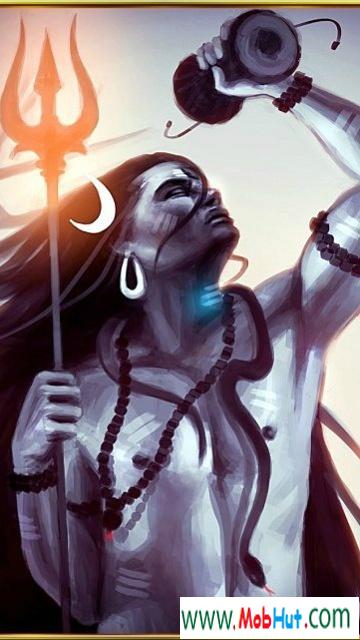Information available by googling:
Shiva (meaning "The Auspicious One"), also known as Parameshwara (the Supreme God), Mahadeva, Mahesh ("Great God") or Bholenath ("Simple Lord"), is a popular Hindu deity and considered as the Supreme God within Shaivism, one of the three most influential denominations in Hinduism. Shiva is regarded as one of the primary forms of God, such as one of the five primary forms of God in the Smarta tradition, and "the Destroyer" or "the Transformer" among the Trimurti, the Hindu Trinity of the primary aspects of the divine. Shiva is also regarded as the patron god of yoga and arts.
Shiva is usually worshiped in the aniconic form of Lingam. Shiva of the highest level is limitless, transcendent, unchanging and formless. However, Shiva also has many benevolent and fearsome forms. In benevolent aspects, he is depicted as an omniscient Yogi who lives an ascetic life on Mount Kailash, as well as a householder with wife Parvati and two sons, Ganesha and Kartikeya or as the Cosmic Dancer. In fierce aspects, he is often depicted slaying demons. The most recognizable iconographical attributes of the god are a third eye on his forehead, a snake around his neck, the crescent moon adorning and the river Ganga flowing from his matted hair, the trishula as his weapon and the damaru as his instrument.
Shiva as we know him today shares features with the Vedic god Rudra. Historians have also suggested that worship of Shiva existed in pre-Vedic times, but not all historians agree on this.
The Sanskrit word śaiva means "relating to the god Shiva", and this term is the Sanskrit name both for one of the principal sects of Hinduism and for a member of that sect. It is used as an adjective to characterize certain beliefs and practices, such as Shaivism. He is the oldest worshipped Lord of India.
Adi Sankara, in his interpretation of the name Shiva, the 27th and 600th name of Vishnu sahasranama, the thousand names of Vishnu interprets Shiva to have multiple meanings: "The Pure One", or "the One who is not affected by three Gunas of Prakrti (Sattva, Rajas, and Tamas)" or "the One who purifies everyone by the very utterance of His name." Swami Chinmayananda, in his translation of Vishnu sahasranama, further elaborates on that verse: Shiva means "the One who is eternally pure" or "the One who can never have any contamination of the imperfection of Rajas and Tamas".
Shiva - Wikipedia, the free encyclopedia

